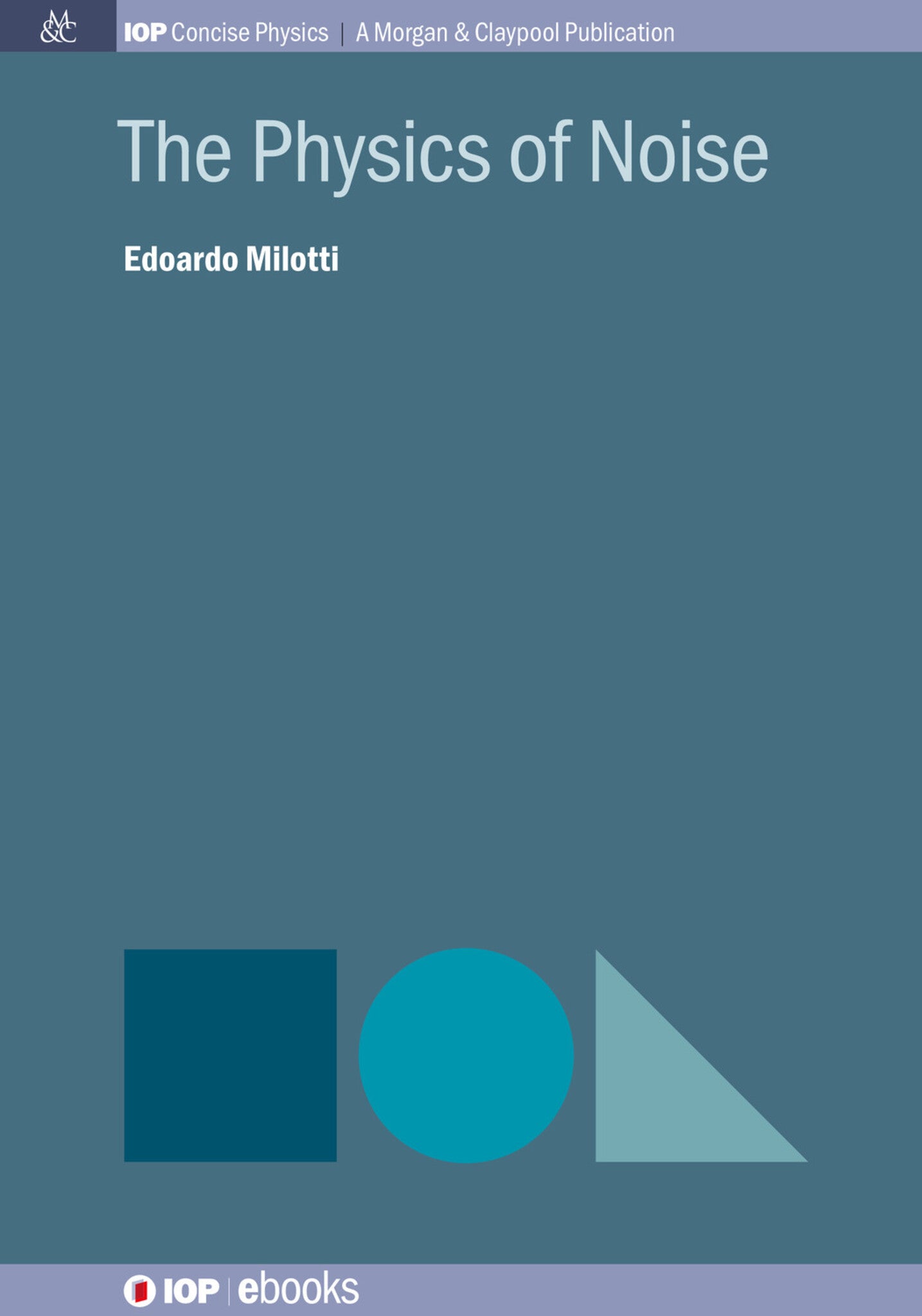We're sorry. An error has occurred
Please cancel or retry.
The Physics of Noise

Some error occured while loading the Quick View. Please close the Quick View and try reloading the page.
Couldn't load pickup availability
- Format:
-
31 October 2019

For a physicist noise is not just about sounds. It refers to any random physical process that blurs measurements and, in so doing, stands in the way of scientific knowledge. This short book deals with the most common types of noise, their properties and some of their unexpected virtues. The text assumes that the reader knows the basics of probability theory and explains the most useful mathematical concepts related to noise. Finally, it aims at making this subject more widely known and stimulating interest in its study in young physicists.

SCIENCE / Weights & Measures, Scientific standards, measurement etc, SCIENCE / Physics / Mathematical & Computational, SCIENCE / Study & Teaching, Scientific research, Mathematical physics

Preface
1 Cosmic noise
1.1 Radio waves from the sky
1.2 The noise of the cosmos
2 What is noise?
2.1 Deterministic and random signals
2.2 Statistical properties of noise
2.3 A broad classication of common types of noise
2.4 A few comments on the physicist's noise and the mathematician's noise
3 Mathematical models of noise
3.1 Fourier transforms
3.1.1 Integral representation of the Dirac's delta function
3.2 Energy carried by a signal
3.3 The power spectrum
3.4 The autocorrelation function and the Wiener-Kintchine theorem
3.5 The power spectrum of noise processes
3.5.1 The power spectrum of a point process
3.5.2 White noise
3.6 Brownian motion
3.6.1 Langevin's equation
3.6.2 Frequency-domain analysis of the Ornstein-Uhlenbeck process
3.7 Thermal noise
3.8 Shot noise
3.9 1=f noise
3.10 The pitfalls of power spectra
4 The science of Johnson noise
4.1 The Boltzmann constant
4.1.1 Noise thermometry
4.2 Noise temperature of a radio telescope
5 Final remarks
6 Further reading
Index



